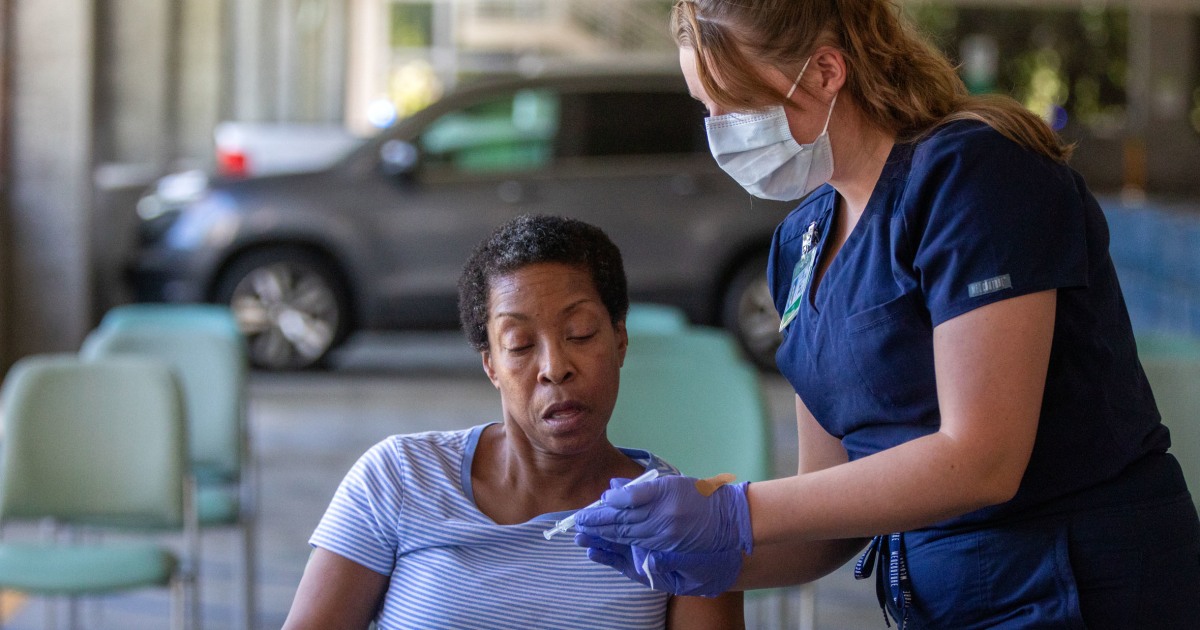
The Centers for Disease Control and Prevention is considering whether to recommend yet another Covid booster shot this spring, especially for people most at risk for severe complications of the illness.
A spring booster would be the same vaccine that was approved last fall, which was formulated to target the XBB.1.5 subvariant. The vaccine is also very effective against the JN.1 subvariant, which is causing almost all Covid infections in the U.S. right now.
While it’s unlikely that the majority of Americans would opt for another dose — just 21.9% of adults received the latest version of the vaccine — experts say that it’s critical to make it available sooner rather than later.
“Waiting till the fall, I think, is a mistake,” said Michael Osterholm, an infectious disease expert and director of the Center for Infectious Disease Research and Policy at the University of Minnesota. “We have clear evidence that either vaccine or previous infection probably gives four to six months of relative protection against serious illness, hospitalizations and deaths, but wanes substantially after that.”
Earlier this week, the CDC said it had no immediate plans to pull back on isolation guidelines for people who test positive for Covid.
Advisers to the CDC are expected to vote on whether to recommend a spring Covid booster during a meeting scheduled for Feb. 28, according to a source close to the Advisory Committee on Immunization Practices. It’s expected that the panel will focus its discussion on those most vulnerable to Covid, including people age 65 and older and anyone with a weakened immune system, such as organ transplant recipients.
“The discussion will be aimed at the people who are most accepting of public health recommendations,” said Dr. William Schaffner, an infectious diseases expert at Vanderbilt University Medical Center in Nashville, Tennessee. “The committee, in its rigorous fashion since the question has come up, will be considering a second dose for people at high risk or for people who wish to get it.”
But even some vulnerable groups who usually adhere closely to their doctors’ advice to get vaccinations are experiencing vaccine fatigue, said Dr. William Werbel, associate director of epidemiology and quantitative sciences with the Johns Hopkins Transplant Research Center in Baltimore.
“Some people have had seven, eight vaccines,” Werbel said. “Transplant recipients would be more receptive and much more likely to follow recommendations, particularly if recommended by the transplant center, but the ceiling is kind of lowered because of this societal fatigue and societal disenchantment with Covid.”
He added that he would recommend a spring booster to his patients if the CDC signs off on one.
Experts generally recommend waiting at least two months after a Covid vaccination or Covid infection before getting another shot, even for high-risk patients.
Vaccination rates are higher for people ages 65 and older, at 42%, according to the CDC. Research shows that people who got the latest booster shot were 54% less likely to be infected with Covid this winter. That level of protection held against the strain found in nearly all circulation of Covid right now: JN.1.
The CDC is not required to follow the advice of its advisory panels, but it usually does.
As of this month, emergency room visits, hospitalizations and deaths from Covid are down, according to the latest CDC data.
“We’re lucky that the vaccines are safe,” Werbel said, “certainly much safer than getting Covid.”






